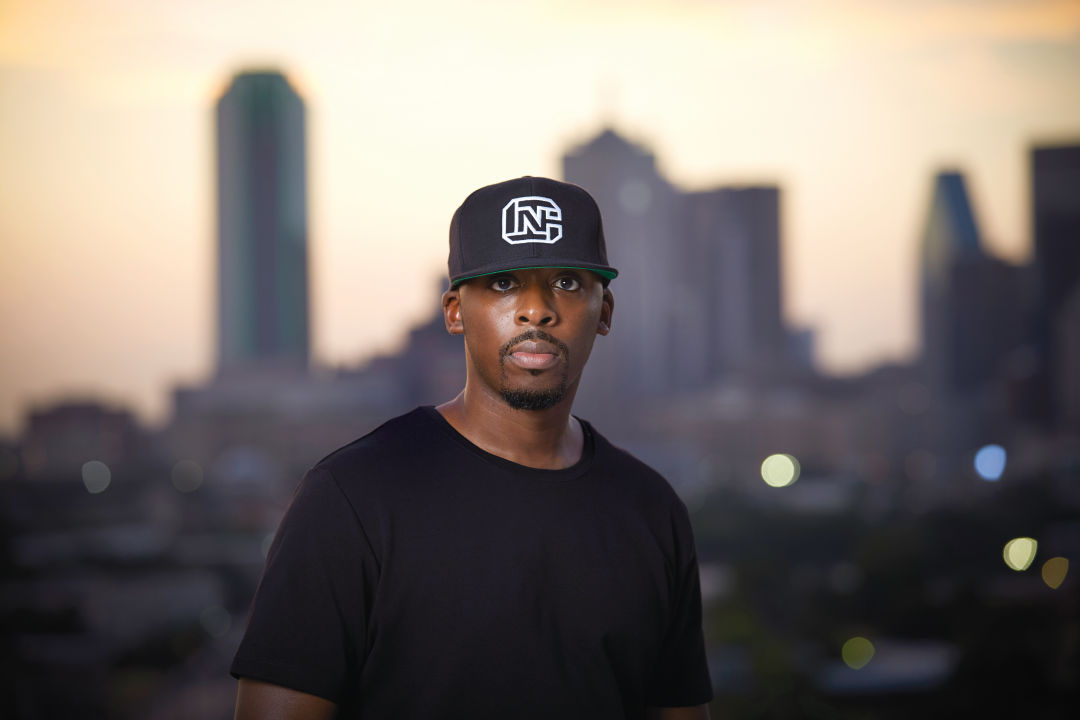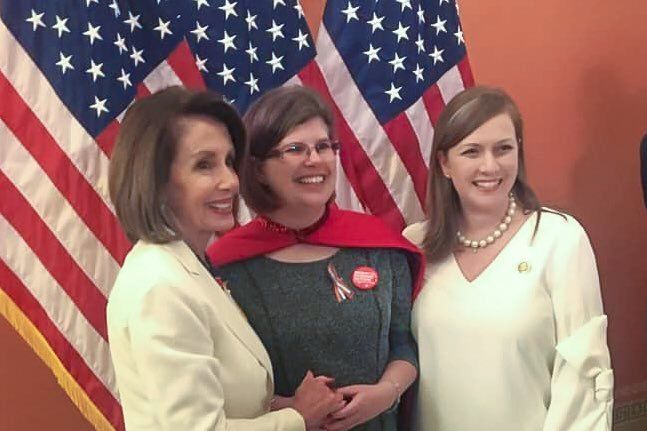Meet the NRA's Most Visible Black Supporter, Colion Noir

Image: Courtesy NRATV/Michael Ives
It was just a few years ago that Collins Idehen Jr. stood at a Houston shooting range aiming a firearm for the first time in his life, trying to cover his nerves. His mother had never approved of weapons, never wanted them in the house. She abhorred the stereotypes about “young black men with guns” and had raised him to avoid embodying such a dangerous cliché. But a friend had invited him, and after first saying, “Nah, I’m good,” he thought, “Why not?”
As he steadied the surprisingly light Taurus Millennium, he wondered why this “inanimate object caused him so much pause and fear.” He lightly pulled the trigger, and the gun went off. He was terrified but shot again, and this time something clicked. “My journey was about as organic as you can draw up,” he says now. He loved the math, physics, and science wrapped up in controlling an explosion in his hand. “I fell in love and followed that rabbit all the way down the hole.”
Now 34-year-old Colion Noir—the alias he created back in 2011, when he started posting videos about how to navigate life as a city-dwelling gun enthusiast—owns more than 50 firearms and is almost always carrying. His YouTube channel boasts more than 600,000 subscribers, and he is one of the most popular commentators on NRATV, a streaming channel available on Apple, Roku, and other digital platforms. (John Oliver recently described the channel on Last Week Tonight as “Fox News on a much lower budget.”)
Raised in southwest Houston, the son of an executive chef and a nurse, both Nigerian immigrants, Noir was taught to value “facts, logic, and reason.” As he became comfortable with firearms, sharing his enthusiasm just made sense to him, he says. Once he started going to shooting ranges while attending Texas Southern University’s Thurgood Marshall School of Law, there was no turning back.
After earning his JD in 2012, Noir interned at a small personal injury firm in Houston, studying for the bar, spending his spare time uploading YouTube reviews of guns and accessories, and riffing on political and cultural issues related to the Second Amendment. NRA honchos took notice as his fan base grew. The following year, he moved to Dallas and started his new job as a paid commentator for NRATV.
The blowback was almost immediate. Russell Simmons—now an accused rapist, but respected as the rap mogul who founded Def Jam Recordings at the time—blasted the organization for hiring “some black guy” to lead an “African-American campaign.” That vein of criticism has followed Noir throughout his career. A senior news editor at Engadget recently summed it up succinctly, writing “@MrColionNoir, you can take their money, you’ll never have their respect.”
It rattled him at first. He didn’t understand why his skin color mattered. “For a moment I thought about stepping back, thinking I just want to be a lawyer and shoot guns in my spare time. I don’t need all this,” he says.
But he shook off the criticism—and the concern of his mom, who was alarmed by the controversy—and found encouragement in supporters happy to see someone who wasn’t white representing gun owners. Today Noir sees himself as a valuable voice within an organization that has been criticized for not exactly rushing to protect the Second Amendment rights of African Americans. Last July, after a jury acquitted the policeman who shot and killed Philando Castile—a black man who, in 2016, was legally carrying a concealed weapon during a traffic stop in St. Paul, Minnesota—Noir used his platform to express dismay as the NRA itself remained silent.
“There are people who hate me in the gun community,” he says. “There are black people who hate me because of my relationship to the NRA. I get it from all sides.”
The situation got even more complicated when Noir started weighing in on the mass shooting at Marjory Stoneman Douglas High School in Parkland, Florida, posting his first video in February, just two days after 17 people had been killed.
Staring straight into the camera, he pushed back against the clamor for stricter gun control laws. “We childishly cling to gun control as the only answer to deal with this evil, while our kids go to unprotected schools, with unprotected teachers, and unprotected classrooms, and then are confused when our kids get slaughtered by evil people.”
That was just the start. In late March, as the Parkland students, impassioned advocates for stricter gun control laws, were getting ready to protest in Washington, D.C., Noir used his videos to urge people to arm school faculty, as President Donald Trump had suggested.
“To all the kids from Parkland getting ready to use your First Amendment to attack everyone else’s Second Amendment at your march on Saturday, I wish a hero like Blaine Gaskill”—the Maryland police offer thought at the time to have stopped another school shooter, although that didn’t turn out to be true—“had been at Marjory Douglas High School last month, because your classmates would still be alive and no one would know your names, because the media would have completely and utterly ignored your story, the way they ignored his.”
The Washington Post reported that Noir taunted the students, but he maintains he was simply addressing the facts. “A lot of people who would normally be speaking out are not because they’re afraid of looking like they’re attacking the kids,” he says. “I’m the only one willing to speak up. … I don’t know if that makes me stupid, bold, or dumb.”
Noir’s mom still worries about him carrying guns and getting tangled up in so much controversy. Sometimes they start to talk about it, he says, but she usually gives up. “I’m not even going to bother,” she tells him.




